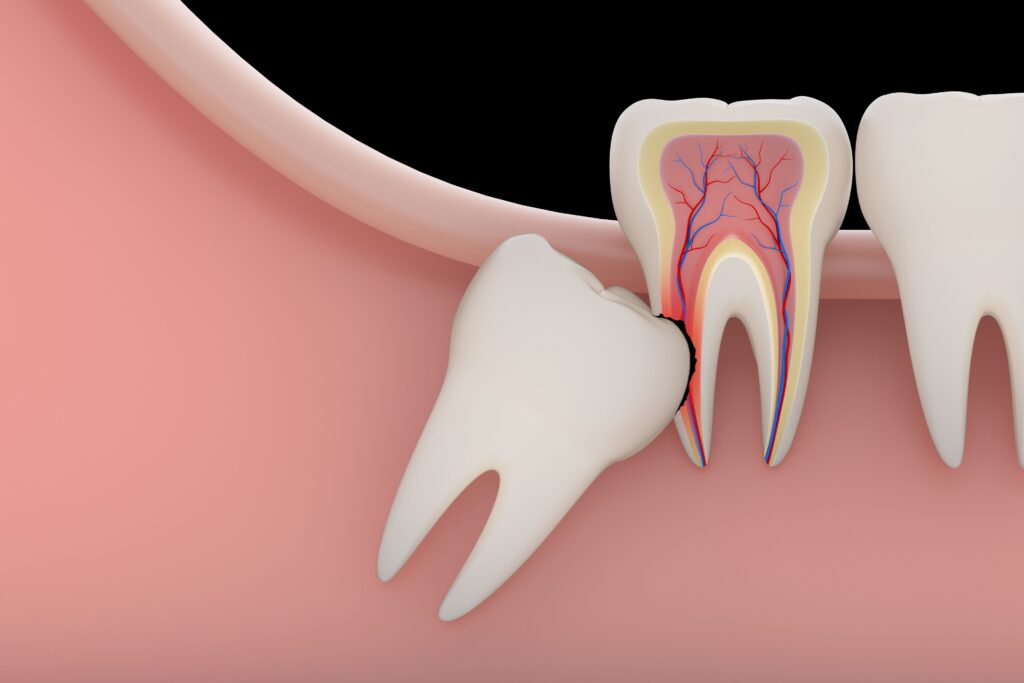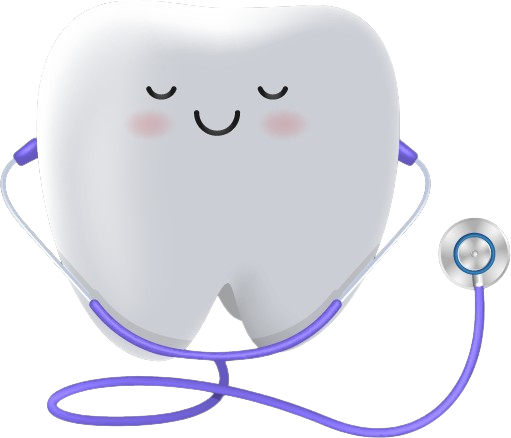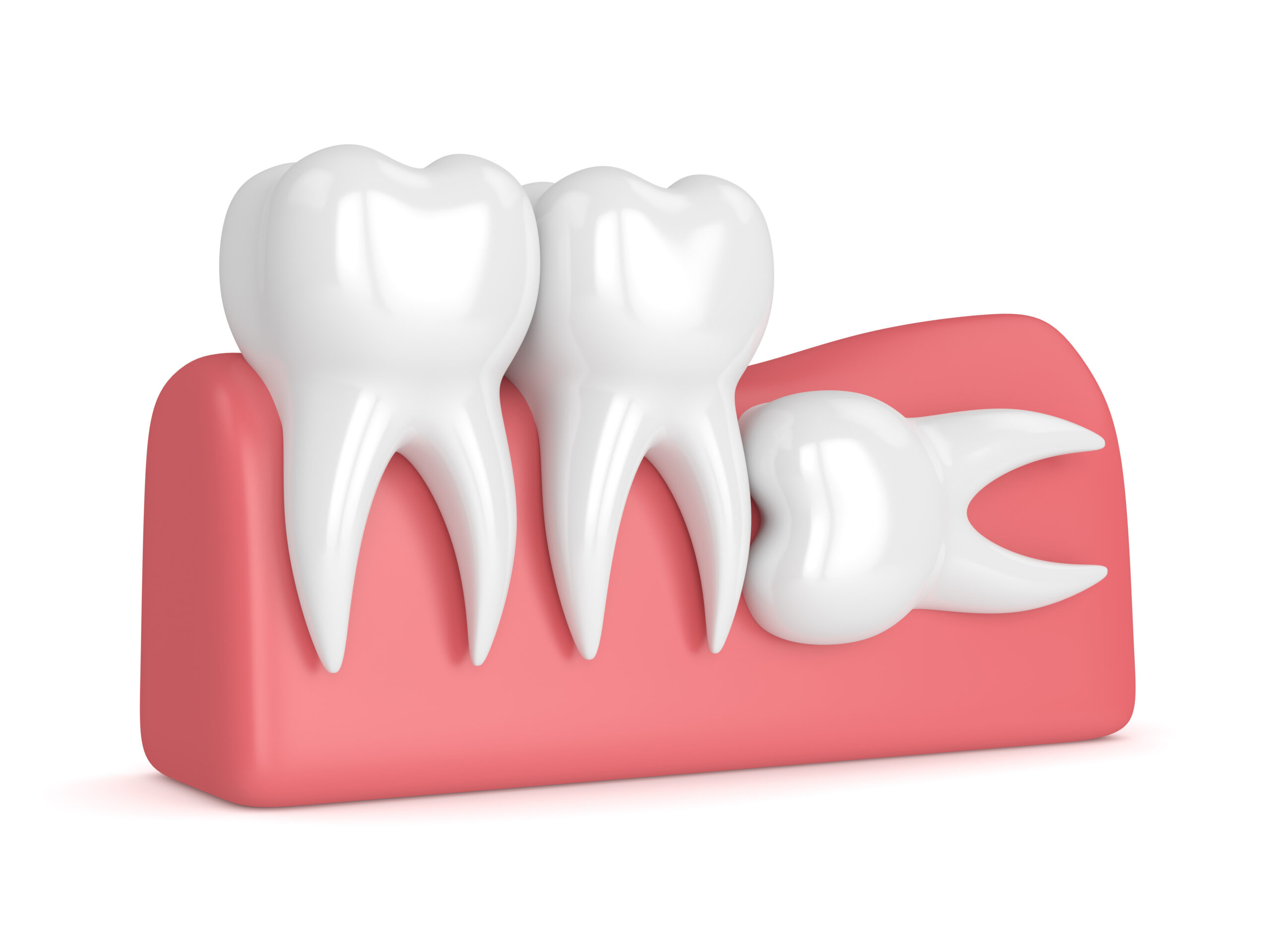Impacted Teeth
Wisdom teeth, or third molars, are the last set of teeth to develop. Often, they fail to emerge properly and become impacted between the jawbone and gum tissue. This can lead to swelling, pain, infection, and damage to nearby teeth, gums, and bone.




About Impacted Teeth
Wisdom teeth, or third molars, are the last set of teeth to develop, often emerging improperly and becoming impacted between the jawbone and gum tissue. This impaction can lead to various issues, including swelling, pain, infection, and damage to adjacent teeth, gums, and bone structure. It’s not just wisdom teeth that can become impacted; other teeth like canines and premolars can also experience impaction, causing similar problems. To prevent complications and maintain oral health, proper treatment such as surgical extraction is often necessary. Regular dental check-ups can help monitor the development of wisdom teeth and detect impaction early, allowing for timely intervention.
WHY “WISDOM” TEETH?
WISDOM TOOTH REMOVAL:
Pain, swelling, pus discharge, cavities, future problems, X-ray findings, gum infection, adjacent teeth damage, and numbness.
Addressing wisdom tooth pain promptly is crucial to prevent further complications.
Winter's Classification based on angulation helps in determining the need for extraction.
SURGERY AND AFTERCARE:
Wisdom tooth removal is generally painless under local anesthesia. Post-surgery discomfort depends on various factors.
Addressing wisdom tooth pain promptly is crucial to prevent further complications.
Winter's Classification based on angulation helps in determining the need for extraction.
POST-SURGERY CARE :
Important for blood clot activation and smooth healing.
No spitting, pressure over the surgical site, or hot/cold substances.
Follow prescribed medications and home care instructions diligently.
Maintain oral hygiene for proper healing.
WHY “WISDOM” TEETH?
FAQs:
Wisdom tooth removal is generally painless, with discomfort manageable through medications.
Local anesthesia is typically used, but general anesthesia is an option for complex cases.
Avoid strenuous activities, smoking, and certain foods for a specified period.
Discomfort varies but can be managed with prescribed medications and proper care.
